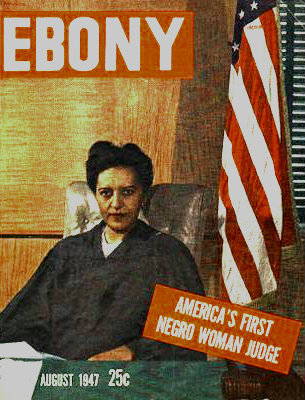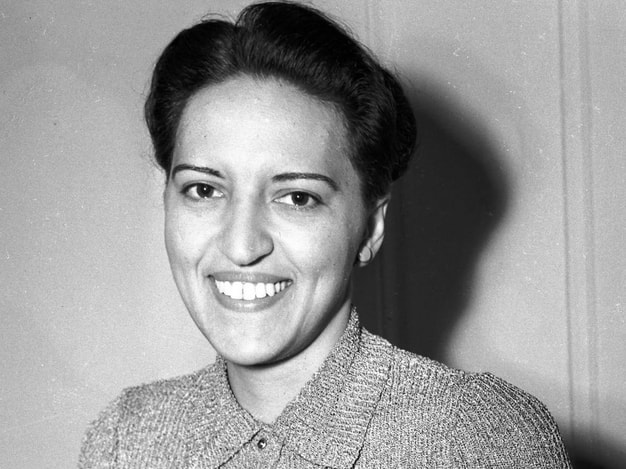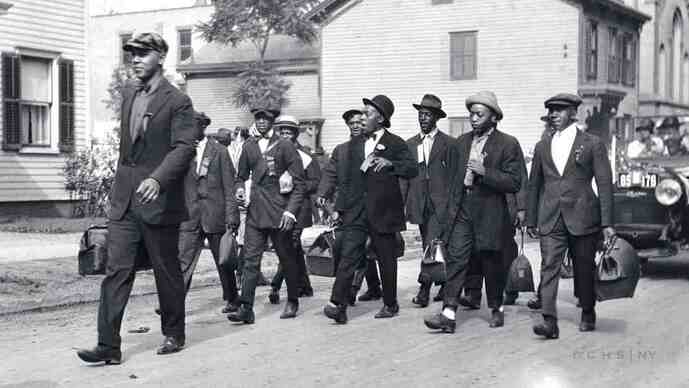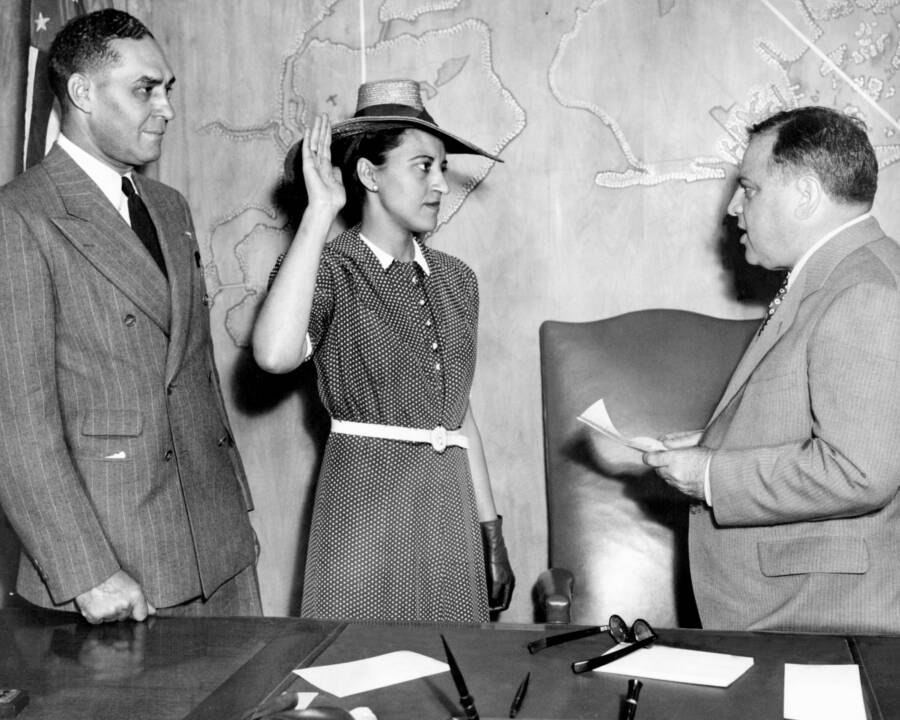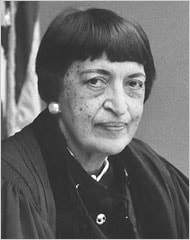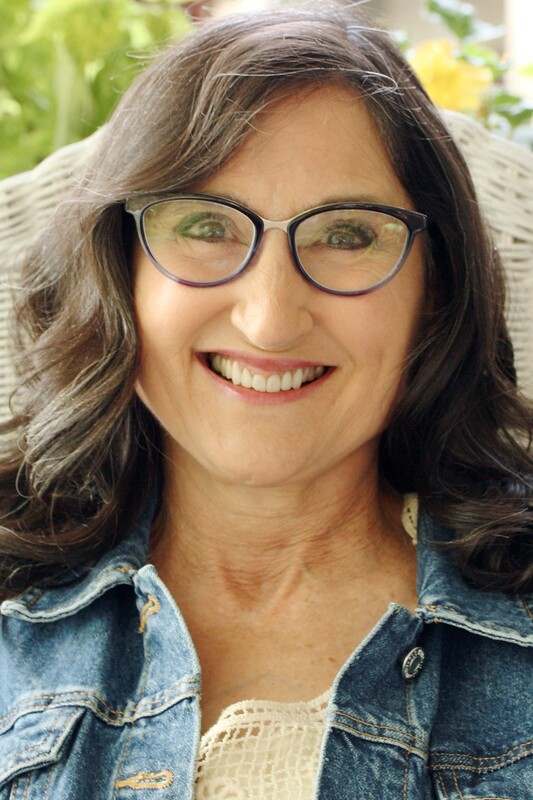|
Jane Bolin paid little attention to the history she was making as the first Black woman judge in America, and more to the needs of kids, a human resource we can't afford to waste. In 1931, with segregation prevalent throughout the country, Jane Bolin became the first Black woman to graduate from Yale Law School, where racist students thought it good fun to slam doors in her face. Though black and female, Jane armed herself with her degrees, ambition and desire to do good and moved to New York City. She became the first black woman to join the New York City Bar Association, and the first to work in the city’s legal department. “Everyone else makes a fuss about [all these firsts], but I didn’t think about it, and I still don’t,” she told the New York Times in a 1993 interview. “I wasn’t concerned about first, second or last. My work was my primary concern.” Her 40-year career in New York City's Domestic Relations Court primarily focused on protecting the city's children, particularly under-privileged youngsters, a human resource she insisted American could not afford to waste. Judge Jane Bolin may not have cared about making history, but her legacy challenges and inspires us today. The children she fought for are merely called by different names today. Several years after her first judicial appointment, in 1944, Jane Bolin was invited back to give a speech in the town where she'd grown up. The folks in Poughkeepsie, NY, probably didn't expect she'd take them to task when they asked her how she could leave their beautiful small town for NYC. Jane said she had no choice but to leave Poughkeepsie if she wanted to "bring to fruition the aspirations and ambitions and dreams I had had from my childhood...I hate fascism whether it is practiced by Germans, Japanese or by Americans, and Poughkeepsie is fascist to the extent of deluding itself that there is superiority among human beings by reason solely of color or race or religion. "There are Negro and Jewish and Catholic, Japanese and Indian youngsters who dream the same dreams I once did and who shoot [for] the same stars. What will you make democracy mean to them? America, which has reached its present stature only by the contributions of its various minority groups, can it afford not to utilize the abilities and aptitudes of these citizens. Can America stand this human waste?" Exchange those modifiers with Black, Muslim, Latinx, Asian and Indigenous and the question asked a lifetime ago still stands. Jane lost her mother, Matilda Emery who was white, when she was eight years old and was brought up by her father Gaius C. Bolin. Bolin was one of the 380,000 Black veterans who'd fought in the "World War" to make the world safe for democracy and come home ready to push for their rights at home. Jane's father set a fine example for his daughter. In 1989, Gaius Bolin became the first Black to graduate from Williams College. He became a successful small town lawyer in mostly white Poughkeepsie and a founding member of his local NAACP chapter. She spent hours in his office, later recalling, “Those leather-bound books just intrigued me.” Outside the safety of her father's office, Jane stood out as a biracial childing her primarily white hometown, stared at by neighbors and shut out of some local businesses. Reading material in her home, Crisis Magazine, carried news of the lynchings of Black Americans across the Jim Crow south. "I was horrified and transfixed by pictures and news stories of lynchings and other atrocities against blacks solely because of their race.... "It is easy to imagine how a young, protected child who sees portrayals of brutality is forever scarred and becomes determined to contribute in her own small way to social justice,” Bolin said later. Arriving in New York City to look for a job, Jane needed all her determination to move ahead against the continuing slaps to the face. “I was rejected on account of being a woman, but I’m sure that race also played a part,” she said. “The reception I got was very, very businesslike, and I was disposed of rather rapidly.” Ironically, Jane's father had been first to discourage her career aspirations. “He was very opposed to the idea at first,” Bolin later said. “He assumed I’d be a schoolteacher. He didn’t think that women should hear the unpleasant things that lawyers have to hear.” Or be exposed to the “grossest kind of human behavior.” Her school guidance counselor had also advised Jane not to try and become a lawyer. When Jane couldn't get a job, she started her own law firm with her husband Ralph Mizelle, and within five years was hired in New York City's corporation counsel office. Jane had worked there two years, when she received a cryptic message from City Mayor Fiorello LaGuardia, telling her to meet him at the World’s Fair. “I was very apprehensive,” Jane remembered, thinking that she would be reprimanded for something. “I couldn’t think of anything that I had done.” She met LaGuardia at the appropriate time and place, and with little ado, told her “I’m going to make you a judge. Raise your right hand.” “I was in a state of shock,” Jane said. “I did what he told me. I raised my right hand.” Reappointed to her seat by three more mayors, for three more ten-year terms, Jane did not retire until forced to by judicial age limits. Throughout her career, she sought to show “a broad sympathy for human suffering.” “Those gains we have made were never graciously or generously granted. We have had to fight every inch of the way.” The highlights of her career included a ruling that probation officers be assigned fairly regardless of race or religion, and another making it illegal for private childcare centers receiving public funding to refuse children due to race or ethnicity. Jane said, "I'd rather see if I can help a child than settle an argument between adults over money."
Jane Bolin died in 2007 at the age of 98, leaving us not only a life's work advocating for children and families and a model for dedicated public service, but a solid path for black women who want to work in the legal system today. Sources https://www.blackpast.org/african-american-history/bolin-jane-1908-2007/ https://allthatsinteresting.com/jane-bolin https://www.essence.com/feature/jane-bolin-first-black-woman-judge-history/ https://dchsny.org/bolins-on-race/ https://magazine.williams.edu/2016/spring/feature/gaius-c-bolin-class-of-1889/ Comments are closed.
|
I'm fascinated to discover little-known history, stories of people and events that provide a new perspective on why and how things happened, new voices that haven't been heard, insight into how the past brought us here today, and how it might guide us to a better future.
I also post here about my books and feature other authors and their books on compelling and important historical topics. Occasionally, I share what makes me happy, pictures of my garden, recipes I've made, events I've attended, people I've met. I'm always happy to hear from readers in the blog comments, by email or social media. Archives
September 2023
Categories
All
|
